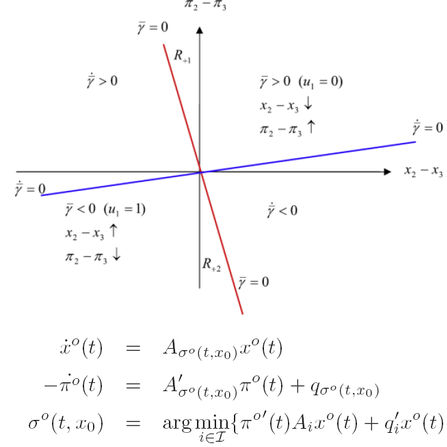Systems Medicine
of Infectious Diseases
Research and Consulting Group
Machine Learning for Multiscale Analysis of Biomedical Data
Control Theory
Control theoretical tools to tailor therapies
Overview: Optimization of therapies and vaccines have been performed integrating clinical observations and empirical knowledge from medical tests. A systematic approach that integrates a variety of medical research data is crucial to harness knowledge and to optimize therapies towards personalized medicine.
State of the art: Although the application of optimal theory could be a catalyzer for the development of therapies, a general solution for the optimal control problem is hard to find even numerically. It is necessary to either find particular solutions to reduced models or explore other strategies which guarantee suboptimal performance in more complex models.
Our research in Optimal Control Theory aims to:
- derived optimal trajectories in reduced models of infectious diseases
- develop dynamic optimization algorithms to reduce the computational burden whilst still computing optimal trajectories
- relax the demand of optimality to obtain suboptimal strategies with a guaranteed level of performance in large complex systems
Relevant Publications in this Field:
- G. Hernandez-Mejia, A.Y. Alanis, M. Hernandez-Gonzalez, Rolf Findeisen, E.A. Hernandez-Vargas. Passivity-based Inverse Optimal Impulsive Control for Influenza Treatment in the Host. IEEE Transactions on Control Systems Technology. 2019
- G. Montaseri, A. Boianelli, E.A. Hernandez-Vargas, M. Meyer-Hermann. PK/PD-based adaptive tailoring of oseltamivir doses to treat within-host influenza viral infections. Progress in Biophysics and Molecular Biology. 2018 - [Link]
- G. Hernandez-Mejia, A.Y. Alanis, and E.A. Hernandez-Vargas. Inverse optimal impulsive control based treatment of influenza Infection. Proceedings of the 20th IFAC World Congress, Toulouse, France. 2017 [PDF]
- E.A. Hernandez-Vargas, P. Colaneri, and R.H. Middleton. Switching Strategies to Mitigate HIV Mutation. IEEE Transactions on Control Systems Technology, Vol. 22 (4), 1623-1628, 2014 [PDF]
- E.A. Hernandez-Vargas, P. Colaneri, and R. Middleton. Optimal therapy scheduling for a simplified HIV infection model. Automatica, Vol.49 (9), 2874–2880, 2013 [PDF]
- E.A. Hernandez-Vargas, P. Colaneri, and R. Middleton. Sub-optimal switching with dwell time constraints for control of viral mutation. IEEE Conference on Decision Control, Maui, Hawaii, 2012 [PDF]
- E.A. Hernandez-Vargas, R. Middleton, and P. Colaneri. Optimal and MPC switching strategies for mitigating viral mutation escape. IFAC World Congress, Milan, Italy, 2011 [PDF]
- E.A. Hernandez-Vargas, P. Colaneri, R. Middleton, and F. Blanchini. Discrete-time control for switched positive systems with application to mitigating viral escape. International Journal of Robust and Nonlinear Control, Vol. 21 (10), 1093–1111, 2010 [PDF]
- E.A. Hernandez-Vargas, P. Colaneri, R. Middleton, and F. Blanchini. Dynamic optimization algorithms to mitigate HIV escape. IEEE Conference on Decision Control, Atlanta, 2010 [PDF]
- R. Middleton, P. Colaneri, E.A. Hernandez-Vargas, and F. Blanchini. Continuous-time optimal control for switched positive systems with application to mitigating viral escape. IFAC Symposium on Nonlinear Control Systems, Bologna, Italy, 2010 [PDF]

